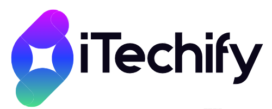With the ongoing pandemic, internet dependency has taken a new leap. With this increased internet usage, hackers have an excellent opportunity to leverage this situation to their advantage.
The availability of new and complex hacking technologies allows them to steal users’ sensitive data and credentials. So, there is an urgent need to pay attention to casual, unsafe browsing habits and take necessary steps to secure your browsing from dangerous cyberattacks. Here are some very effective hacks to make your internet experience safe.
Pay Attention to Your Browser Settings:
The first and foremost thing you must attend to is your browser security when it comes to internet security.
This can quickly be done by selecting the appropriate browser security settings. Browse these security settings carefully and check the ones that give you maximum security from unwanted intrusions from hackers.
For example, you could enable HTTPS in the settings to protect you from websites that still lack SSL certificate protection. There are many other security features in the browser settings worth exploring.
Be Watchful of Plugins You Install:
Ensure that you download only the best-reviewed and most trusted plugins. Do not overload your system with any plugin you can find.
You will only be putting yourself at risk as many plugins are responsible for tracking your online activities, downloading malicious codes, and doing much more harm than adding value to your user experience.
Trust Only SSL Certificate Secured Websites:
It would help if you always looked for the visual symbol of trust, the padlock, before the website’s URL.
This indicates that an SSL Certificate secures the website. The SSL Certificate secured website ensures that all communication between the user’s web browser and protects all the user’s crucial information and through Man-in-the-middle hacking attempts.
If you are a website owner, you can win your customers’ trust with the highest degree of SSL Certificates like authenticate brands and their low-cost certificates like Cheap RapidSSL Certificates or Comodo SSL cert. It balances security and budget requirements and offers actual value for your money.
Make Sure That Browser Cookies are Deleted Regularly:
Cleaning up your browser cookies and cache memory regularly is always advisable. Websites use these cookies to store certain information regarding your activity on the website.
Next time you visit these websites, this stored information in the form of cookies is used to load the website quickly. But, these cookies simultaneously pose a significant threat as hackers can use them to track and steal confidential users’ information. These are vulnerable spots that if left careless or personal data. Hence, you must delete these cookies from time to time.
Take Regular Browser and Plugin Updates:
Keep your browser updated all the time. Older versions only make your browsing systems vulnerable to new security threats. Each new version contains security patches that help improve the browser’s cyber browser. The latest versions will give you foolproof browsers and all the existing security loopholes in the older versions.
You must also pay heed to your plugins to enhance the user experience. Keep them regularly updated, too, as this will protect you from suffering heavy losses due to malicious code or virus infections.
Employ Good Anti Exploit Program and Antivirus Software:
A tightened line of defense is formed by having an excellent anti-exploit program that detects and blocks any malicious requests in the web browser.
Good antivirus software safeguards users’ necessities, such as nail protection against spyware or virus infections. It acts as one of the users’ necessary scans of anything and everything downloaded on your PC, hence preventing viruses. This, in turn, helps to secure your browsing.
Refrain From Sharing Explicit Personal Information on Social Platforms:
Restrict yourself from giving out too much personal information on social platforms. Many cybercrimes occur based on information extracted from these social platforms, such as keeping track of your location and personal data, including family details, financial details, etc.
You must enable privacy settings for social media accounts to guard your privacy and secure your browsing. Make sure you choose strong login passwords and periodically change them. Your passwords should not be easy to guess and should not be drawn from your basic information, like your date of birth.
Stay Alert Against Phishing Attacks:
Before clicking on any weblink, ensure it is the same as the original link. Phishing emails usually show an urgency to perform specific actions by clicking on the malicious link sent in the email.
Clicking on this link may either direct the user to a fake website that can steal the credentials shared here or misuse them to carry out unlawful financial transactions. In addition, some malicious links insert harmful codes that can cause havoc if they infect the system’s crucial system’s ration files.
In conclusion, no browser can offer you a secure environment or the next level unless you work on the above tips and protect your browsing from theft. However, incorporating small measures can make a significant difference over time and help keep your devices and data safe from cybercrooks and attacks.











